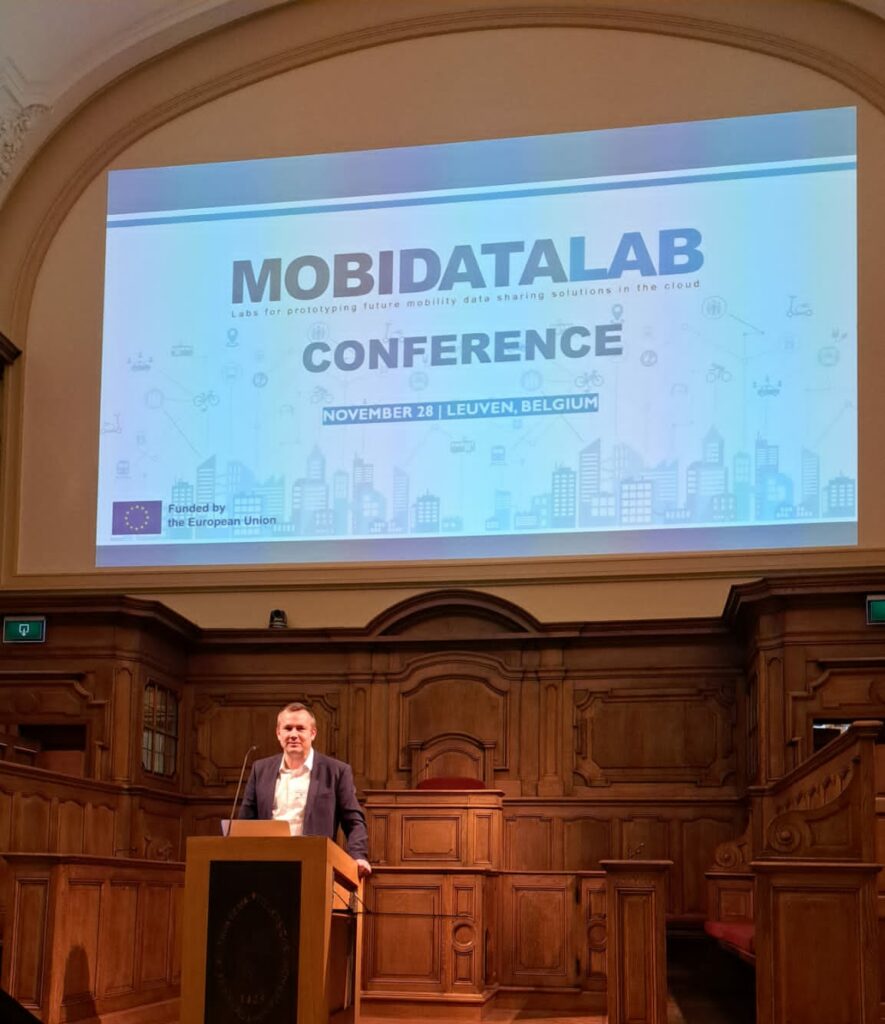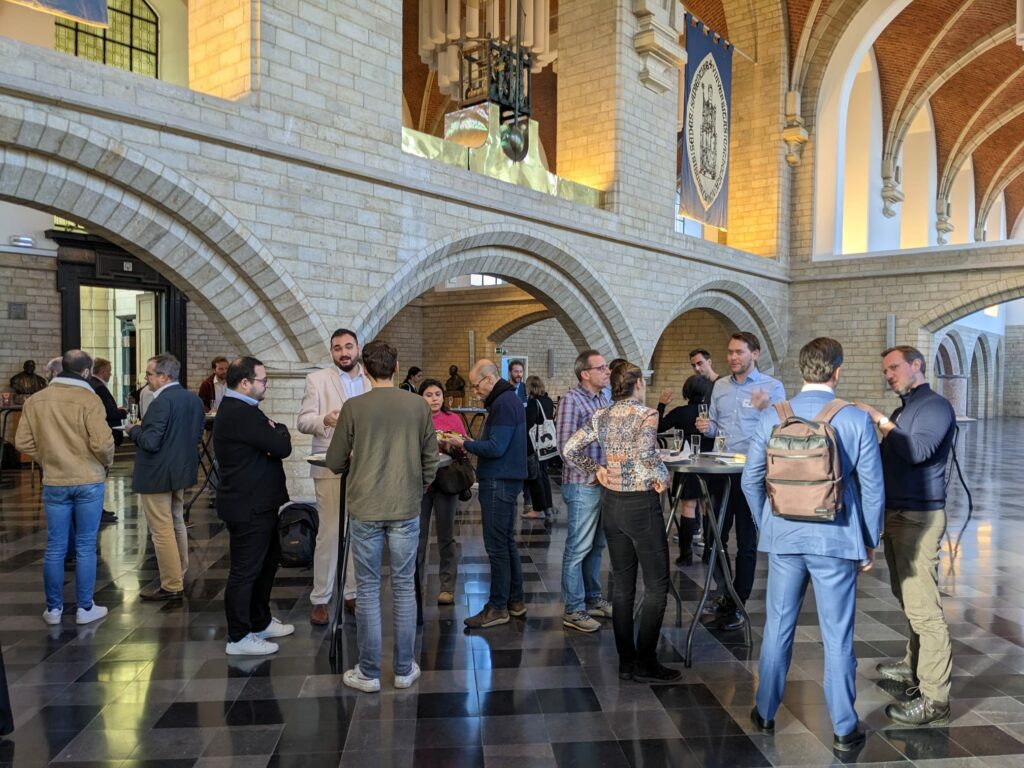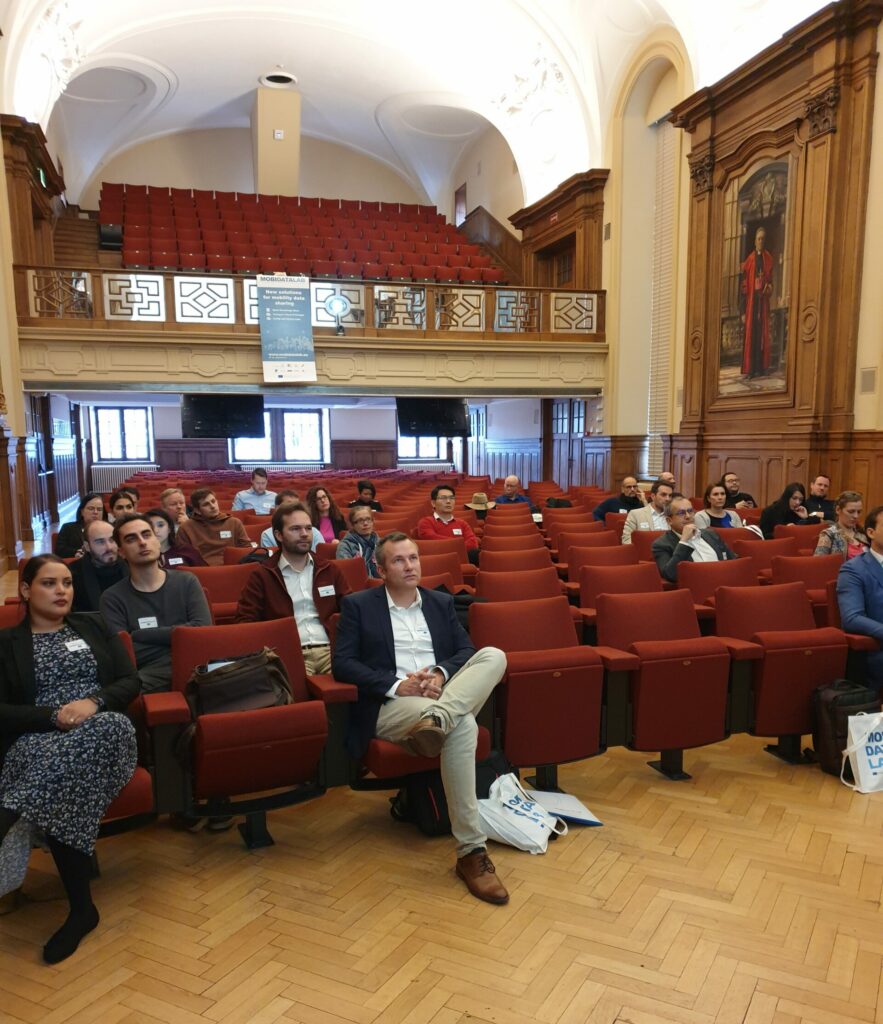This website uses cookies so that we can provide you with the best user experience possible. Cookie information is stored in your browser and performs functions such as recognising you when you return to our website and helping our team to understand which sections of the website you find most interesting and useful.
A great legacy: MobiDataLab successfully bowes out at the final conference in Leuven
The MobiDataLab Conference has officially concluded the project, and what a journey it has been! From initiating contacts with all parts of the mobility data ecosystem, to delevoping tools and fostering their use, MobiDataLab has marked its step in the European long stairs towards a common data sharing culture. With this in mind, the MobiDataLab Final Conference aimed at setting the framework in which the project contributed, sharing the results of our hardwork, stimulating the debate further, and rewarding all members of our great community.
Agenda

Where our work serves the community
To conclude on 3 years of intense work to foster data sharing in the mobility sector, we heard from the European Commission how MobiDataLab contributed to a common policy and research effort to put data at the heart of key systems: energy, health, and of course transport. By advancing standards, market processes and frameworks to enable data sharing in the transport sector, MobiDataLab has contributed to the preparation of a common European Mobility Data Space (EMDS). At the crossroad of two EU strategies on Data and on Sustainable and smart mobility, the EMDS will facilitate access, pooling, and sharing of data from existing and future sources, clustered by domains and supported by EU legislation and EU-funded projects.
MobiDataLab addressed the challenge of data collection and exploitation in the planning phase of urban mobility. Followed up by several EU-funded projects taking up on subsequent issues (network-wide data exchange, management and monitoring, governance, and business models in traffic management, mobility and logistics), MobiDataLab also produced inputs to be exploited by parallel European initiatives: NAPCORE, the coordination organisation for National Access Points, and DATA4PT, a project involving Member States to support them in deploying a set of harmonised European public data standards (Transmodel, NeTEx and SIRI).


Always Remember

The achievements of MobiDataLab are a great ground work for further development. The project coordinator recalled the main objectives of the project, providing a structure to better understand the results and exploit them in the future. Following this presentation, key partners of the MobiDataLab consortium introduced the output of their work in an open presentation aimed at triggering exchange with listeners.
Knowledge
Services
Connections
The project developed a wide basis of knowledge for the creation of relevant tools and services. This knowledge was published under the form of deliverables, available at the MobiDataLab websites’ publications page, and content on the knowledge base also part of the website. Besides, an open knowledge base was established, gathering all dynamic content of the project.
To ease data sharing and encourage all stakeholders in this trend, a Transport Cloud prototype was developed in the project, offering multiple services around mobility data. From collection to standardisation and anonymisation, this tool based on research and knowledge from the project is intended to demonstrate what is needed for the establishment of a data sharing culture in the European transport sector.
One of the main obstacles to data sharing identified by the project is stakeholders’ reluctance, including data owners, transport operators, and authorities. A solution identified is to show the potential of data and data exploitation to improve stakeholders’ activities and help them better fulfill their responsibilities. In this sense, connections between diverse actors were achieved in the MobiDataLab living labs.
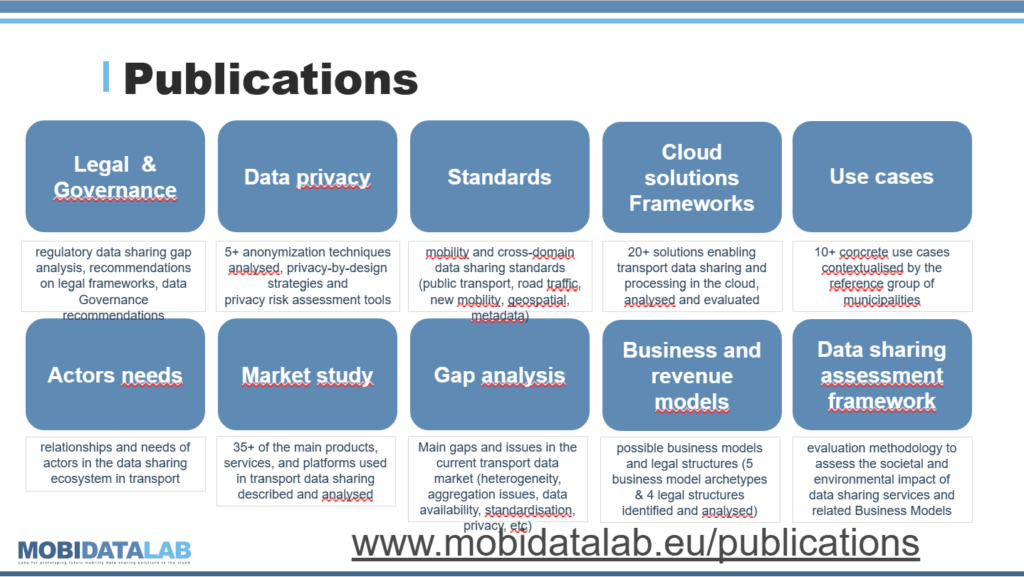
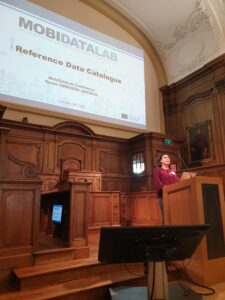
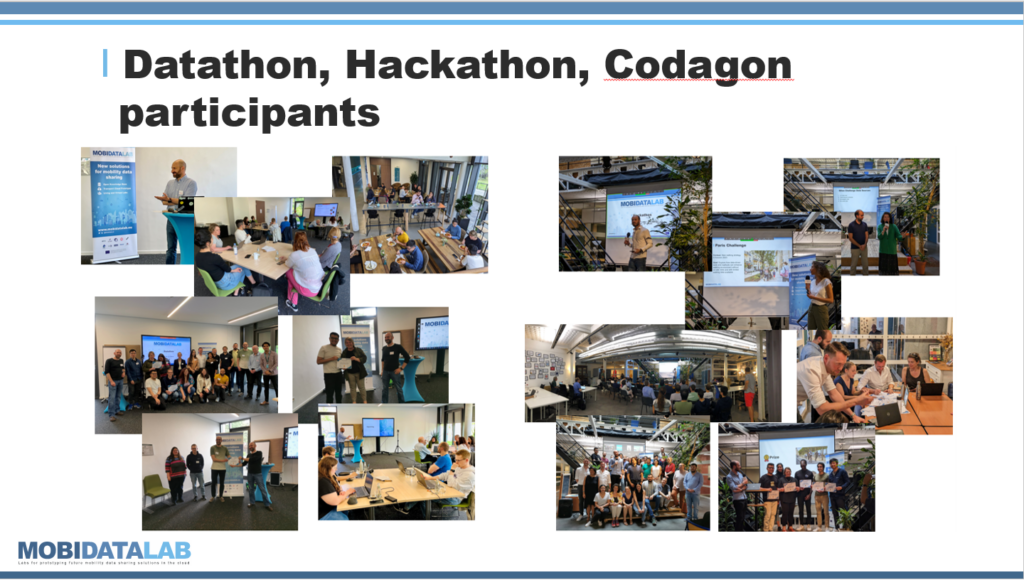
Up to you!
The last part of the MobiDataLab conference highlighted the key role of confrontations and exchanges in advancing methods, approaches and systems. Court cases underlining the debate were presented, as well as their conclusions. They show the impact of many legislations on data and data sharing, once again demonstrating that data has a key role in all sectors, and data handling requires multi-sided collaboration.
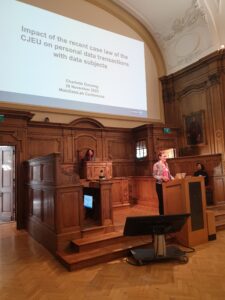
The panel discussion between representatives of public authorities, service providers and law experts showed how fundamental data access and use is for tranport systems. Experts’ statements also clarified the challenges they face, and what initiatives are on going to bring solutions. The audience participation through questions and comments also led to the conclusion that all parts of the transport system are needed to come up with comprehensive and therefore sustainable solutions to current issues.
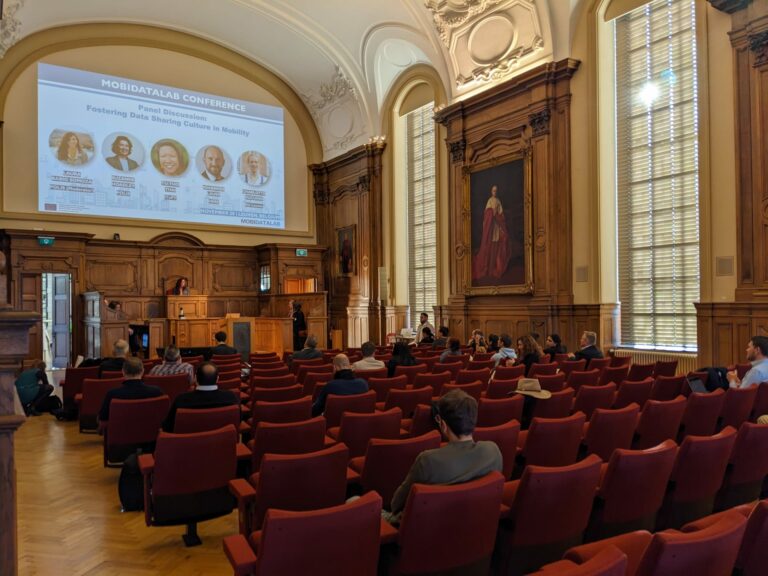
The MobiDataLab Living Lab instances have shown some options to bring stakeholders together and build fruitful outcomes from successful collaborations. With the short pitch of the winning solutions for each instance (datathon, hackathon, codagon), the MobiDataLab conference came to its conclusion: the project partners expressed a deep gratefulness to all involved stakeholders, who sparkled and maintained the conviction that only a common effort can achieve what the project contributed to starting – mobility data sharing.
